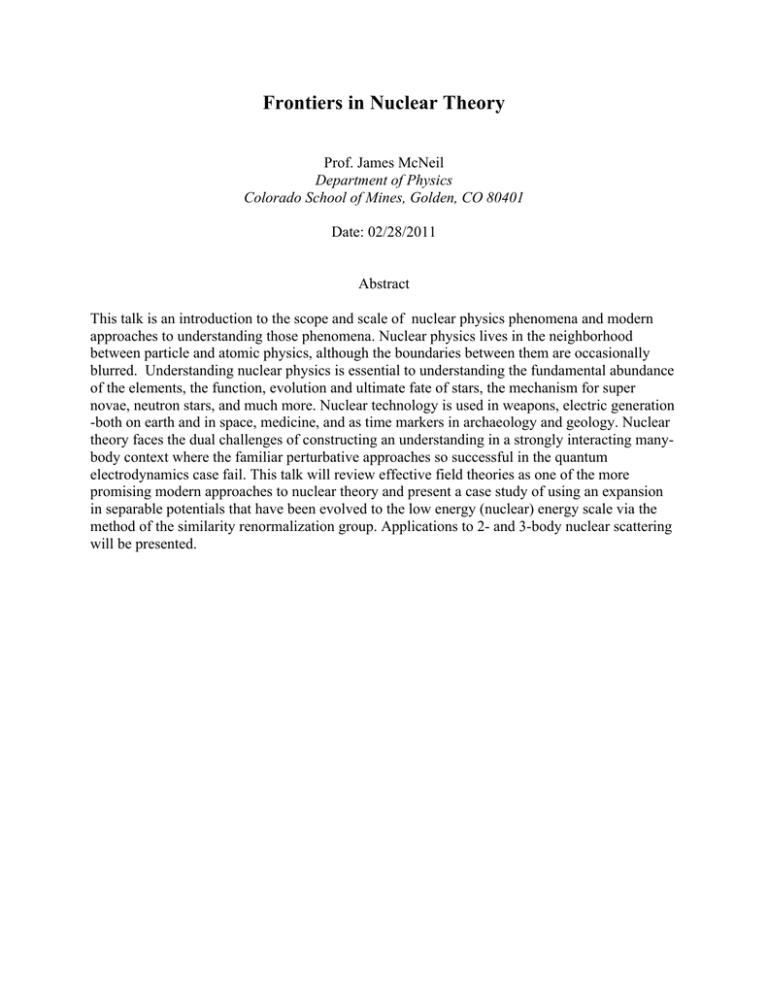Frontiers in Nuclear Theory
advertisement

Frontiers in Nuclear Theory Prof. James McNeil Department of Physics Colorado School of Mines, Golden, CO 80401 Date: 02/28/2011 Abstract This talk is an introduction to the scope and scale of nuclear physics phenomena and modern approaches to understanding those phenomena. Nuclear physics lives in the neighborhood between particle and atomic physics, although the boundaries between them are occasionally blurred. Understanding nuclear physics is essential to understanding the fundamental abundance of the elements, the function, evolution and ultimate fate of stars, the mechanism for super novae, neutron stars, and much more. Nuclear technology is used in weapons, electric generation -both on earth and in space, medicine, and as time markers in archaeology and geology. Nuclear theory faces the dual challenges of constructing an understanding in a strongly interacting manybody context where the familiar perturbative approaches so successful in the quantum electrodynamics case fail. This talk will review effective field theories as one of the more promising modern approaches to nuclear theory and present a case study of using an expansion in separable potentials that have been evolved to the low energy (nuclear) energy scale via the method of the similarity renormalization group. Applications to 2- and 3-body nuclear scattering will be presented.


